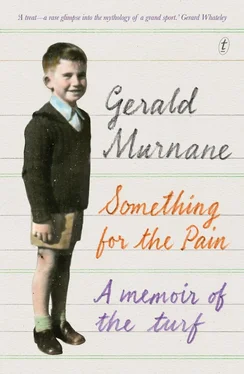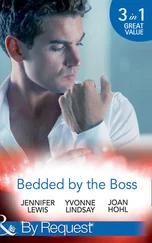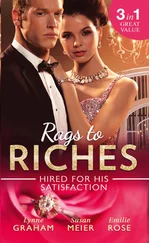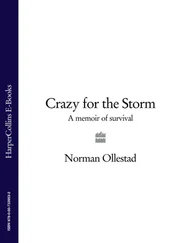I don’t think the words of the songs had much effect on me, although I may have taken note of the tone of a singer’s voice or been moved by the crooning or the wailing of a choir. In fact, I had trouble understanding the words of many a song, and too many of those that I did make out were words to do with love, passion, desire, heartbreak — things that I believed I could readily imagine; things that I had already experienced in my limited, child’s way; but things that I considered unsuitable for singing about and best brooded over or put into writing. I think that I probably got from my favourite popular songs what I would call rudimentary narratives, or perhaps even less than that — perhaps themes, or merely hints of themes of the sort that lie behind narratives. The things that I’m trying to describe are probably beyond description, but I’ve thought of a few titles that might hint at what I seemed to get from some songs. A certain song, for example, might have seemed to be telling me of Clarity emerging from confusion . Another song might have had for its deep message Hope replacing despair . Still another might have hinted to me of Effort persisting in the face of failure . Although I’ve found it hard to write about this matter, I was easily able, throughout my childhood and my teens, to think about it. As soon as I had heard a song for the first time, I knew whether or not it had a deep message for me and, each time I heard the song later, or each time I hummed it or heard it in mind, I understood a little more of the message.
When we tuned our wireless sets, we turned a knob and watched an upright needle move to the left or to the right behind a lighted panel of glass on which were painted the identification codes of the various stations. All Victorian stations had the numeral 3 followed by two letters, and most of the stations that my family listened to for news, music, and what we called serials seemed to be bunched near the centre or towards the right of the dial. Far to the left and rather isolated from all the rest were 3LO, 3AR, and a few regional stations that no one in our house ever listened to. These were the national stations, as we called them: the outlets of the ABC, or Australian Broadcasting Commission. If, out of curiosity, I tuned into one of the ABC stations, I heard either a male voice talking on some subject of no interest to me or a sort of music that had no message for me, being, so I thought, tuneless, repetitive, and interminable. (For a few years in my early teens, I was greatly interested in Sheffield Shield and, especially, Test cricket. I soon learned that the best descriptions came from the ABC, and I listened to them continually, but this in no way changed my attitude to their other programs.) On a couple of occasions, my brothers or I must have tuned into the ABC while my father was in the room and must have listened, or tried to listen, for a few minutes to some of the mysterious music that came from the far end of the dial. My father reacted with surprising indignation. He asked for the music to be turned off at once. He called it snobs’ music. No one ever listened to such music for enjoyment, he said. The people who went to concerts and sat through hours of the stuff did so only so that they could boast afterwards to their snobbish friends of having heard Caruso or Toscanini. He pronounced the last syllable of the last-named so that it rhymed with tinny . Sometimes my father’s opposition to a cause or a point of view made me inclined to defend it, or, at least, to investigate it. I felt no such inclination with ABC music, as I might have called it.
Hit parades proliferated through the early 1950s, although the sort of music heard on them would seem quaint today. One day in 1955, when I was in Form Five, a boy named Michael O’Dowd turned around from the desk in front of me and performed for me a rendition of a song that had won him completely: a song that would soon, so he said, be top of the hit parades. O’Dowd had heard the song in a film that he had seen recently: Blackboard Jungle . The title of the song was ‘Rock Around the Clock’. The performers were Bill Haley and his Comets. The song would not only top the hit parades, as O’Dowd had predicted, but would change their content forever afterwards, but how could he or I have known this?
The new music did not take over all at once. In early 1956, I was much taken by a song that seemed to me one of the old sort: a song that I was able to relate to, as they say nowadays. I rejected the words and refused to sing them. (‘There was an Emperor Napoleon / Who’d never heard of Nickelodeons…’) Instead, I sang the stirring melody and waited for it to work on me. I was singing the melody in front of a boy named Brian Parker when he asked me whether I knew that my hit-parade song had been derived from a piece of classical music. No, I had not known what Brian was telling me, but my curiosity was aroused. Brian, it seemed, was well acquainted with classical music. (I learned the term from him and used it for many years afterwards.) Brian listened often to the ABC and persuaded me to do likewise.
For the next seven years, I spent roughly equal amounts of time listening to each sort of music. Instead of the half-hour programs presenting the top eight items of the hit parade, the commercial stations now had hour after hour given over to what became known as the Top Forty or the Top Fifty or even, I seem to recall, the Top Hundred. This sort of program occupied my attention in the late afternoon and early evening. Later, after the seven o’clock news, I would turn to the ABC stations and would listen until bedtime to their sort of music. In the early 1960s, I acquired a record player and began collecting a few records. I collected only classical music and never the other sort, and one afternoon in early 1963, for no specific reason that I can recall, I walked to the radio and switched off the Top Fifty program or whatever I was then listening to. Never during the fifty and more years since then have I paid any attention to popular music. Even in the 1980s, when my three sons often played their favourite music loudly in our house, did I make any effort to distinguish between U2 and Morrissey or their kind. Did I get those names right just then?
The reader may have supposed that this is another of those uplifting stories about someone who grew up ignorant of the world of serious music, who discovered its existence almost by chance, and who thereafter revelled in it for the rest of his life. No, this book, and every section in it, is about the world of horse racing, which has not yet been mentioned in connection with the Emperor Napoleon or with any other musical subject matter.
I first heard in Brian Parker’s house in Glen Iris, in mid-1956, a recorded performance of the 1812 Overture , by Peter Tchaikovsky, one or two themes of which had gone into the making of the popular song that had so impressed me — the song about the Emperor Napoleon. I was greatly impressed, but my hearing the overture in company — even in the company of a school friend — kept me from understanding why the music so impressed me. A year or two later, after I had acquired my own record player and my own recording of Tchaikovsky’s piece and was able to listen alone to the music, I made a remarkable discovery.
I hope I can say that I’m not a boastful person, but if I were permitted to boast about one achievement or one characteristic of mine, I’d boast that I’ve never accepted any popular belief or theory without first testing it against my own experience or asking what possible relevance it could have for me. Expert commentators on serious music, as I’ll call it from here on, would mostly have a poor opinion of the 1812 Overture . The sort of persons who lose themselves in Beethoven’s string quartets or Bach’s fugues would probably smile indulgently or snort in derision if they were to read the following sentence. I esteem Tchaikovsky’s 1812 Overture far more than I esteem any of Beethoven’s string quartets or Bach’s fugues and I esteem the overture thus because, unlike any of the quartets or fugues, the overture, from its beginning to its end, brings to my mind a series of images comprising a complete narrative: a story beginning in early morning and culminating in late afternoon; the story of a notable and closely contested horse race.
Читать дальше












